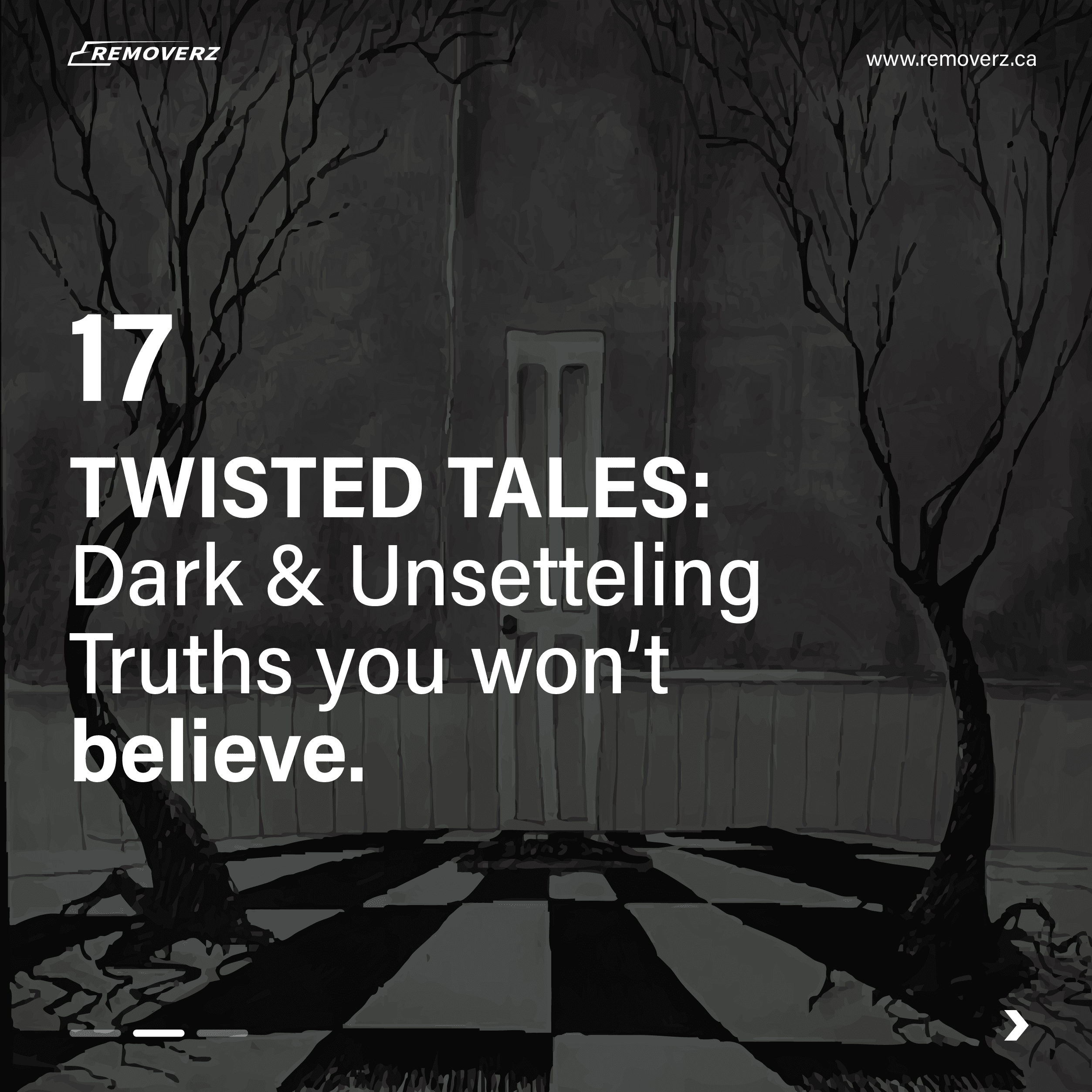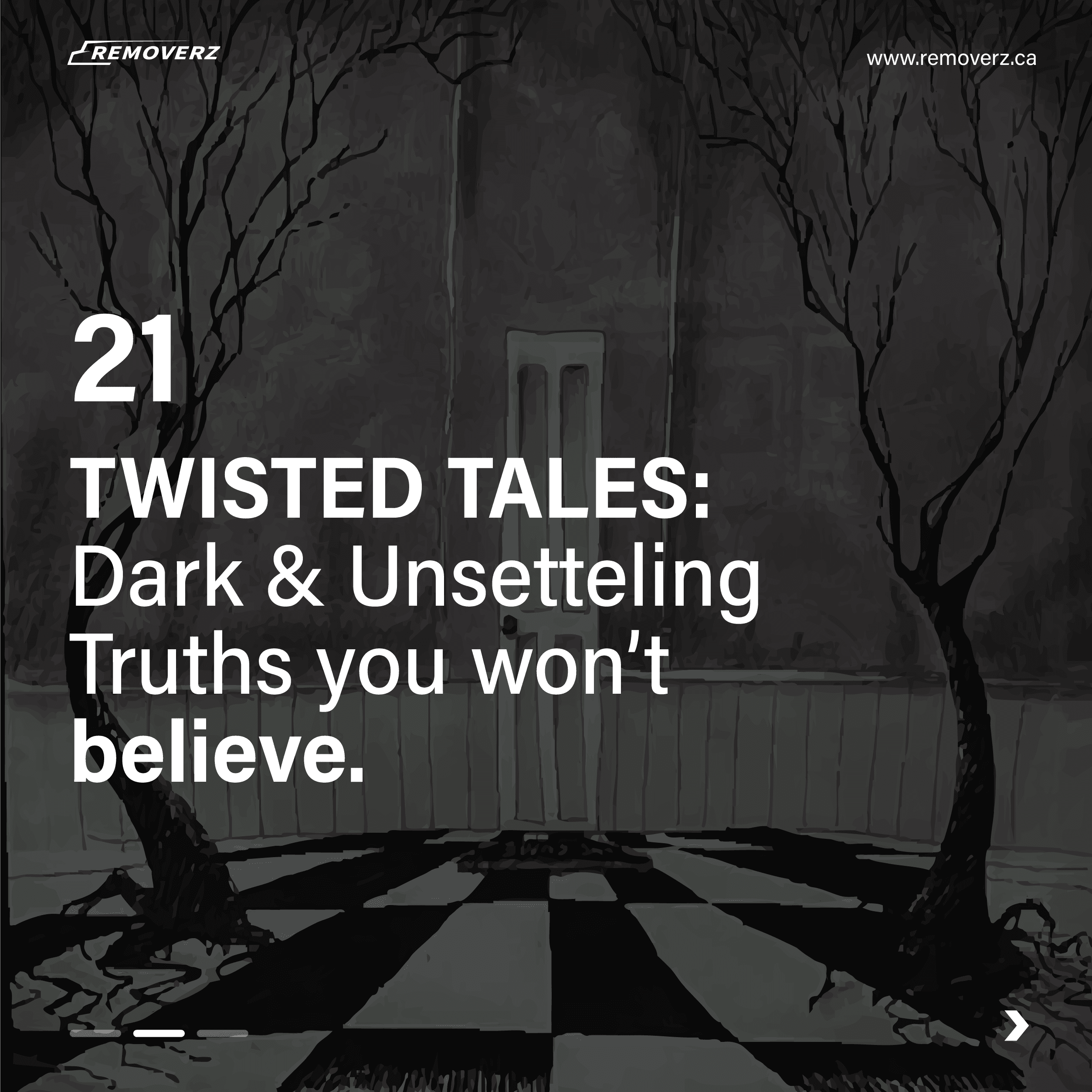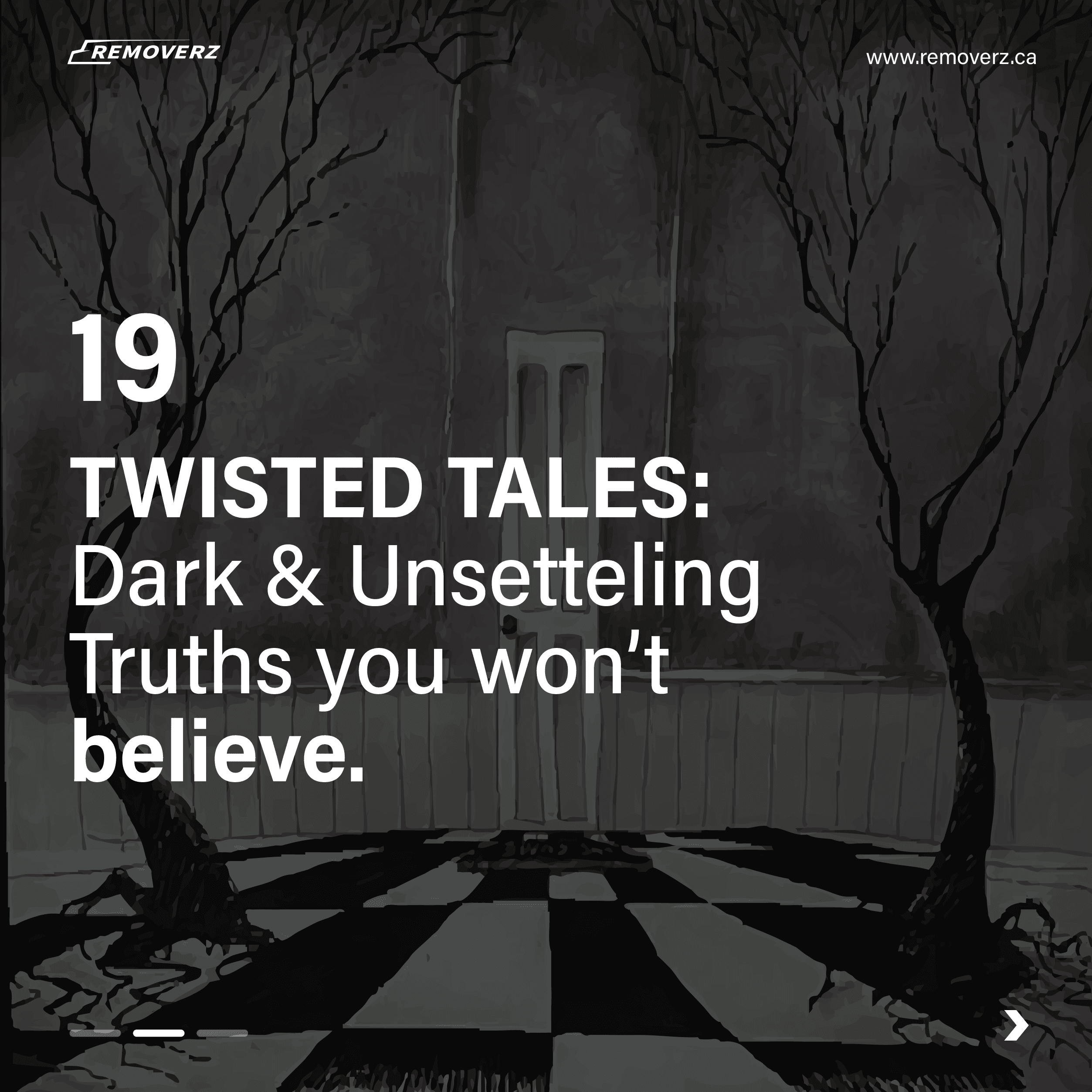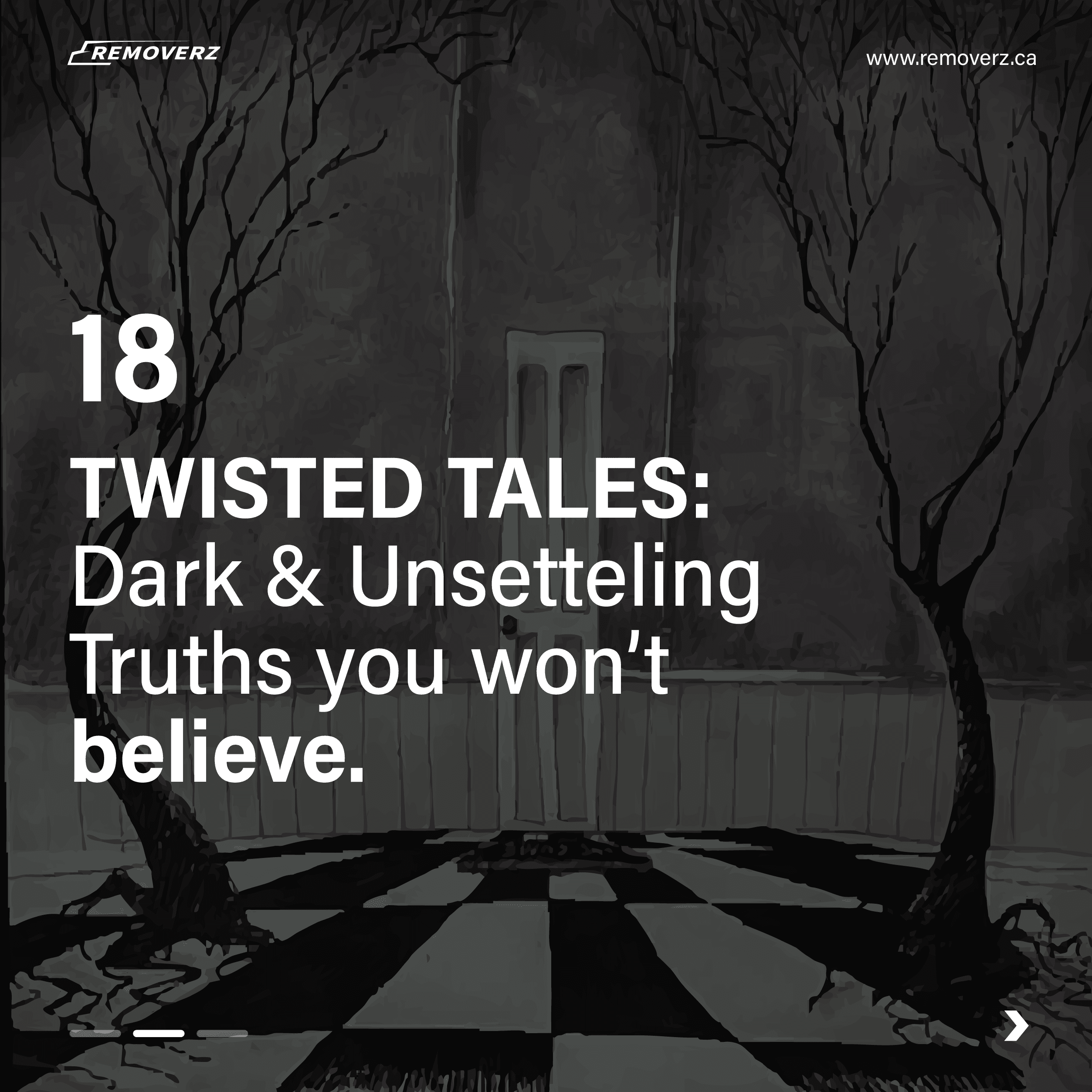It was my first day back at work after the accident. A peculiar kind of dread clung to the air that morning, as though something unseen and unnerving whispered at the edges of my awareness. The accident—fragments of it still hovered in the recesses of my mind, elusive and half-forgotten. The doctors said I had lost months, perhaps more. My memory, shattered like glass, only held the shards of the present, while the past slipped away like sand through my fingers. Faces, names, places—everything had become a blur.
But there was work to be done, and I was a man of simple needs. My hands, those calloused tools of labor, could carry out the mundane without question. Junk removal was my trade—nothing complex, just clearing out the old, the forgotten, the unwanted. And so, on that bleak morning, I found myself at an old, desolate house, standing on the threshold of a job that would alter the course of my life.
The house was a decaying relic of some forgotten era. Its windows, dark and gaping, stared like empty eyes into the gray sky above. The air around it felt heavy, as if it had absorbed every sorrow and whisper of the past. The family had left years ago, and the building was due to be sold, its contents deemed worthless, as if to be tossed aside like the memories that lived within its walls. My task was simple: clear the attic, make way for the future, and leave behind only dust.
As I ascended the stairs to the attic, I couldn’t shake the strange sense of familiarity that crept up on me. The very structure of the house, with its warped floors and crooked beams, seemed to pull at some buried corner of my mind. I had no reason to feel such a thing, not with my fractured memory, but it gnawed at me all the same.
The attic was dark, the only light a narrow shaft that fell from a grimy window above. The air smelled of old wood and must, of things left to rot and decay. Boxes upon boxes of forgotten treasures lay scattered around the space, as if someone had abandoned them in a hurry. But something caught my eye amid the clutter. Tucked beneath a stack of brittle papers was a dusty, leather-bound diary—its cover cracked with age, its pages yellowed and fragile. The moment I touched it, a chill ran down my spine, a sensation so sharp I almost dropped it.
I sat down amidst the clutter, my hands trembling slightly as I opened the diary. The first few pages were filled with mundane entries—a man’s daily life, the routine of his existence. But then, as the days wore on in the journal, the tone began to change.
The author—a man named Thomas Whitmore—wrote of strange occurrences in the house. Objects moved of their own accord, furniture shifted in the night. He described hearing whispers in the halls, low murmurs that seemed to come from the very walls. At first, he dismissed them as the product of a tired mind, but as time passed, the phenomena grew more frequent, more intense. He wrote of doors slamming shut when no one was near, of shadows creeping in the corners of his vision.
And then came the final entries. The handwriting in those pages became jagged, disjointed—clearly the work of a man losing his grip on reality. The last words, written in haste, were a chilling account of something far worse:
“I have seen him. A man, pale as death itself. He stands in the doorway at night, watching me. His hair, black as coal, falls in waves to his shoulders. His eyes—eyes as dark as the void—stare at me with an intensity that chills my very soul. He is dressed in a coat, tattered and old, as though it had not been touched in years. And yet, when I look at him—when I truly see him—I know it is me.”
I froze, my breath catching in my chest. I read the entry again, then again, and yet the words remained the same. “I know it is me.” The very essence of the sentence seemed to echo in my mind, growing louder, reverberating through the empty space of the attic.
My pulse quickened, my heart thumping in my ears. I knew not what to make of it, nor why it unsettled me so. Was it merely coincidence that the ghost described in those final words appeared to bear such an uncanny resemblance to me? Long black hair, eyes as dark as the void, a tattered coat—all described with such sickening detail that it was impossible to ignore the connection. I tried to dismiss the thought, but the more I read, the clearer it became. It wasn’t just a description—it was an identity. His identity, my identity. His identity.
I stood abruptly, dropping the diary to the floor with a dull thud. My breath grew shallow as a cold sweat formed on my brow. For a moment, I thought I heard something—a soft rustling in the dark, the faintest sound of a whisper. But when I looked, the room was still. The shadows clung to the corners, and the oppressive silence settled back over me.
I tried to shake it off. It had to be a trick of my mind—an illusion born from the strain of my recovery, from the fractured pieces of memory that still haunted me. But the feeling of something—or someone—watching me did not fade.
My gaze wandered once more to the diary. As I reached to pick it up, something caught my eye. It was a photograph, hidden within the folds of the last page. I pulled it free, my hands trembling as I studied the image. It was a faded photograph of a man, standing in front of the very house I had just entered. His hair was dark, cascading down his shoulders in soft waves. His eyes, though the photograph was old and worn, gleamed with an unsettling familiarity.
It was me.
The realization hit me like a wave crashing upon the shore, pulling me under in its dark depths. This was no coincidence. The diary, the description, the photograph—all of it pointed to one inexorable truth. But what that truth was, I could not say. My mind reeled, and the line between past and present began to blur.
I turned, my body trembling, and for a fleeting moment, I thought I saw him—me—standing in the doorway. His eyes locked with mine, and a knowing smile twisted at the corner of his lips. But before I could react, he was gone, vanishing into the dark recesses of the attic, leaving behind only the echo of his presence.
I left the attic then, and though I tried to bury the memory of what I had seen, I could not escape the feeling that something had changed, that something had shifted irrevocably. The house, with its centuries of secrets, seemed to have revealed its darkest one to me. I had touched something I was never meant to understand, and in doing so, I had become part of it.
When I left the house that day, the weight of it all pressed heavily on my chest. But even now, as I sit here and write these words, I cannot shake the feeling that I am not done. That the ghost—the man who was both me and not me—still lingers, waiting for something.
What, I cannot say.
I only know that the story is not over. The diary, the ghost, the man in the photograph—they are still out there, just beyond the veil, watching. And perhaps, I have already begun to fade into them.





